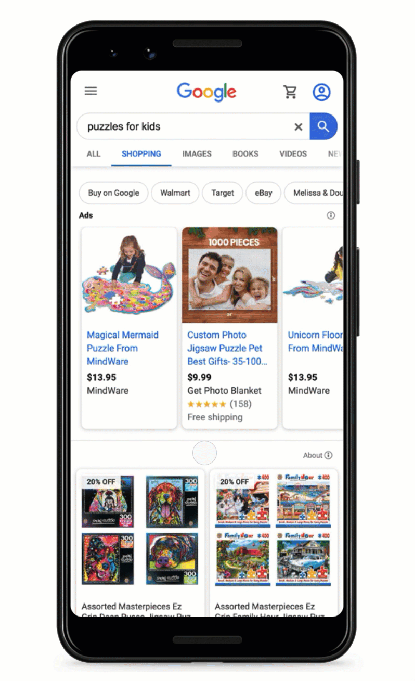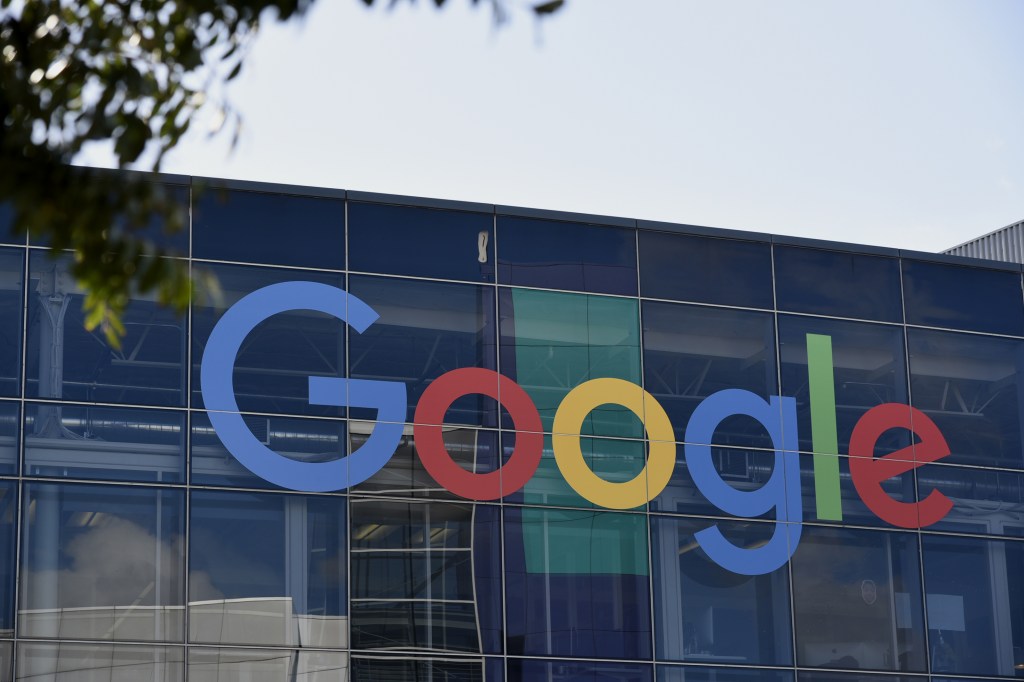Google is making a change to its product search offering, meaning that unpaid listings picked by algorithm will dominate results displayed on the Google Shopping tab instead of mostly paid product listings.
In a blog post announcing the move, Bill Ready, president of Google’s commerce division, cited the coronavirus pandemic as a catalyst for Google to speed up a pre-existing plan to switch from Shopping results being determined by paid ad auction to mostly free listings.
Making Shopping listings free for merchants is one way the tech giant is looking to support struggling retailers through the COVID-19 crisis, he suggested.
“Beginning next week, search results on the Google Shopping tab will consist primarily of free product listings, helping merchants better connect with consumers, regardless of whether they advertise on Google,” wrote Ready. “With hundreds of millions of shopping searches on Google each day, we know that many retailers have the items people need in stock and ready to ship, but are less discoverable online.”
The expansion of free listings is slated to be completed by the end of April. Initially it will only take place in the U.S. — but Google says it intends to roll out the change globally before the end of the year.
While Google is packaging the change as a gesture to help cash-strapped retailers during a time of economic crisis, there’s no doubt the tech giant is also spying strategic opportunity to expand its role in e-commerce in the midst of a coronavirus-shaped boom.
With millions of people stuck at home, and scores of physical stores closed or with heavily restricted access, online shopping has seen huge uplift.
So far, Amazon’s Jeff Bezos has been the most notable winner, adding a reported $24 billion to his personal wealth since the shutdown began — while ad giants like Google are facing heavy exposure to the crisis, as advertisers hunker down and rip up their 2020 marketing budgets.
If Google Shopping can start returning better results for products, and indeed results for more products, there’s an opportunity for the search giant to grow its share of shopping traffic and grab listings clicks from shoppers who might otherwise have run product queries directly on Amazon.
Google is also using the new free product listings feature as a value add “carrot” — to encourage advertisers to (keep) paying it for ads.
“For retailers, this change means free exposure to millions of people who come to Google every day for their shopping needs. For shoppers, it means more products from more stores, discoverable through the Google Shopping tab. For advertisers, this means paid campaigns can now be augmented with free listings,” is how Ready pitches the switch.
As SearchEngineLand points out, this is actually Google returning to its roots — given the first version of its Shopping service (which was then called Froogle) was also free to list.
The switch to purely paid came in 2012. Though the changes now will still see paid product listings slotted into the top of Google search results if users search for product keywords, as well as into the top of the Shopping tab. So Google isn’t giving up all product ad revenue.

In terms of how it works, existing users of Google’s Merchant Center and Shopping Ads who have already opted into the “surfaces across Google program” won’t have to do anything else — and may already be eligible to show products in what Google’s help center describes as “the unpaid experiences.”
Those needing to opt in can do so by selecting “Growth” and then “Manage programs” in the left nav menu and then choosing the “surfaces across Google” program card.
“You can also add products to your product feed, to make even more products discoverable in these free listings,” Google adds.
For new users of its Merchant Center it says it’s aiming to ramp up the onboarding process “over the coming weeks and months.” But presumably there may be some delay in getting access.
Accompanying the switch is a “new partnership” with PayPal — which Google says will allow merchants to link their accounts in order to “speed up our onboarding process and ensure we’re surfacing the highest quality results for our users.”
Existing partnerships to help merchants manage products and inventory, including those with Shopify, WooCommerce and BigCommerce, are ongoing, it adds.
Google has been paying more attention to Shopping recently — with a major revamp of the service last year.
In 2019, it also merged its Google Express shopping service with Google Shopping, then sunset the Google Express brand. And it took on Pinterest’s visual search experience by integrating Google Lens into Google Shopping to guide customers to similar products as those in photos.
Like Amazon, Google leveraged personalization technology to create a homepage that’s unique to each shopper’s habits and purchases. And like Honey and other price-trackers, it can alert customers to potential savings. But to truly rival Amazon, Google Shopping has to be open to more retailers — and the pay-to-play route doesn’t allow for that, especially now as retailers face financial difficulties due to coronavirus lockdowns.
What’s not mentioned in Google’s blog post is that its Shopping service has faced antitrust intervention in the European Union, which slapped Google with a $2.7 billion fine back in 2017 — finding it had systematically given prominence to its own shopping comparison service in results while also demoting rival comparison shopping services.
The company later rolled out tweaks to the Shopping service in Europe that it said are intended to comply with the antitrust ruling, letting comparison services bid to be displayed in the ads displayed at the top of product related search results. Though rivals have continued to complain about the “remedy,” and the EU’s competition chief suggested last year that additional changes may be needed.
TechCrunch’s Sarah Perez contributed to this report
































Comment